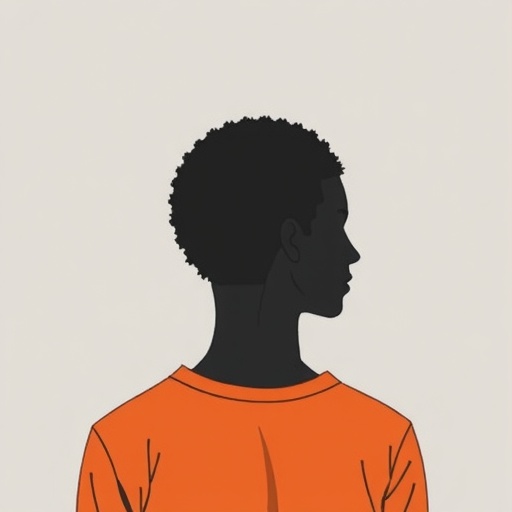Emerging research has illuminated a profoundly troubling connection between racial and ethnic discrimination and the heightened risk of developing psychotic symptoms, according to a comprehensive umbrella review led by University College London (UCL) researchers. This synthesis of international studies, published recently in PLOS Mental Health, underscores the critical interplay between social adversity and severe psychiatric outcomes. The findings not only enhance our understanding of mental health disparities but also press the urgent need to address racism as a factor with tangible neuropsychiatric consequences.
The umbrella review methodically examined data consolidated from seven systematic reviews and meta-analyses, collectively encompassing 23 primary studies and more than 40,000 participants from Europe and the United States. These studies consistently demonstrated a statistically significant association: individuals subjected to racial or ethnic discrimination exhibit markedly increased likelihoods of experiencing psychotic symptoms. Psychosis, characterized by a detachment from reality manifesting in hallucinations, delusions, disorganized cognition, and aberrant behaviors, is a debilitating mental state that underpins disorders such as schizophrenia.
Previous isolated studies hinted at this linkage, but the new umbrella review provides a robust, aggregated evidence base clarifying the magnitude of effect. The data indicate that those who endure racial discrimination are approximately 77 percent more likely to manifest psychotic symptoms compared to non-discriminated peers. Moreover, encountering physical racial violence exponentially raises this risk, with victims being five times more vulnerable to subsequent psychotic phenomena. The relationship extends beyond clinical diagnoses — even non-clinical populations reporting psychotic-like experiences show significant correlations with experiences of racial bias.
This research brings mechanistic insights to the table, suggesting that chronic exposure to racism induces sustained psychosocial stress, which in turn impacts the brain’s neurobiology. Prolonged threat perception and allostatic load may precipitate maladaptive neural circuit alterations, impairing cognitive processing and emotional regulation. Though the review stops short of delineating precise causal pathways, accumulating evidence from neuroimaging and stress physiology converges on the hypothesis that racism acts as a potent environmental stressor modulating brain function in ways conducive to psychosis development.
The study’s lead author, India Francis-Crossley, emphasizes that the profound mental health consequences of direct interpersonal racial discrimination must be understood within a broader sociopolitical context. While the review focused specifically on overt experiences of racism — such as discrimination perceived or encountered personally — it acknowledges the even more insidious role of systemic racism. This form of structural injustice operates covertly but imposes additional burdens on marginalized communities, contributing to entrenched health inequities that transcend individual-level interactions.
Senior author Professor James Kirkbride highlights a critical public health oversight: despite compelling evidence linking racism to increased psychosis risk, efforts to mitigate this societal affliction remain inadequate. The failure to confront and dismantle systemic and interpersonal racism perpetuates not only disparities in severe mental illnesses but also erodes social cohesion and civic trust. Addressing the neuropsychiatric sequelae of discrimination is therefore not solely a clinical imperative but an urgent societal challenge demanding policy-level interventions and community engagement.
Dr. Juliana Onwumere, co-author and expert in psychiatry and neuroscience, succinctly articulates the global threat posed by racism to mental health. Her remarks underscore both the gravity and preventability of the human suffering caused by racist oppression. The review catalyzes renewed calls for multidisciplinary research initiatives to unravel complex biopsychosocial mechanisms and for actionable policies that counteract racism’s pervasive harms. It challenges prevailing narratives that may dismiss racism as transient or peripheral to mental health outcomes.
The implications of this synthesis are far-reaching. They impel mental health practitioners, researchers, and policymakers to adopt an intersectional lens encompassing social determinants when addressing psychotic disorders. Prevention and treatment paradigms must integrate strategies to recognize and mitigate the psychological toll of racial trauma. Additionally, this evidence bolsters advocacy for systemic reforms targeting racial injustice as a lever to improve psychiatric outcomes and advance health equity.
This landmark review also extends the academic conversation on stress-related neuropsychiatric disorders by situating racial discrimination within a recognized etiological framework. Psychotic disorders, long understood through the prism of genetic vulnerability and neurodevelopmental factors, are now indisputably augmented by sociocultural stressors of race-based adversity. This holistic appreciation paves the way for novel therapeutic approaches that address environmental and psychological domains alongside neurobiological underpinnings.
Supported by prestigious entities including the Wellcome Trust, National Institute for Health and Care Research, and UK Research and Innovation, this study exemplifies the critical value of interdisciplinary collaboration in tackling complex health inequities. The findings resonate beyond academic circles, demanding a societal reckoning with racism’s profound human costs.
Ultimately, this review sheds vital light on a crucial yet under-recognized facet of mental health disparities. It underscores that racially motivated discrimination is not merely a social ill but a potent catalyst for serious and lasting psychiatric conditions, with ripples across generations. Addressing this scourge with the urgency, rigor, and compassion it warrants is indispensable for forging a more just and healthy society.
Subject of Research: People
Article Title: The association between racism and psychosis: An umbrella review
News Publication Date: 24-Sep-2025
Web References: DOI: 10.1371/journal.pmen.0000401
Keywords: Psychotic disorders, Psychosis, Schizophrenia, Psychiatric disorders, Mental health, Psychological stress, Racial inequality, Social discrimination, Racial discrimination




